Text

Baby 💜.
#Nick gif#Nicholas Galitzine#rwrb#red white and royal blue#poamizar#firstprince#gif#nick galitzine#pretty smile#VBSA#vermelho branco e sangue azul#principe henry#man#Nick
96 notes
·
View notes
Text
Sequência de "Vermelho, Branco e Sangue Azul" é confirmada pela Prime Video
Estão com saudades de Alex e Henry? A Prime Video confirma a sequência do filme "Vermelho, Branco e Sangue Azul". #VermelhorBrancoeSangueAzul #VBSA
Na madrugada desta sexta-feira (10), a Prime Video confirmou em suas redes sociais a sequência de um dos seus maiores filmes: Vermelho, Branco e Sangue Azul. O longa baseado no best seller do New York Times, conta a história de amor entre o filho da presidente dos Estados Unidos e o príncipe da Grã-Bretanha. É oficial. A sequência de Vermelho, Branco e Sangue Azul está em criação!…

View On WordPress
#alex claremont#Nicholas Galitzine#principe henry#Red#Red White & Royal Blue#sequência de vermelho branco e sangua azul#Taylor Zakhar Perez#vemelhor branco e sangue azul
0 notes
Text
I fully believe that Grix was working as intended when he attacked Ruben Hopclap at the Frosty Fair btw.
Grix was programmed by Arthur Auegfort specifically to protect the school from anything that could take it out of existance, and then Henry Hopclap did some kind of hacking but we don't really know what.
I think that 1. Henry Hopclap changed Grix's programming to make him overviligant on the rules in an attempt to help his nephew and friends get the Bad Kids in trouble and 2. That this backfired and caused Grix to be more aware of the Rat Grinder's plan.
I think that Grix sensed the 24 sided star underneath the stage, understood that it would put the school in danger, and deduced that the best way to stop it would be to kill Ruben to stop him from playing his music ("Get mad, get mad") to protect the school.
Grix wasn't going against his original programming. He was following it to the extreme. He only attacked the Bad Kids after they prevented him from stopping Ruben from playing.
Tldr: Grix wasn't hacked to go against his original programming, but to follow it to the extreme
#fantasy high junior year#fhjr theory#d20 fhjy#fantasy high#dimension 20#principal grix#ruben hopclap#henry hopclap
176 notes
·
View notes
Text
Stranger Things The First Shadow Review
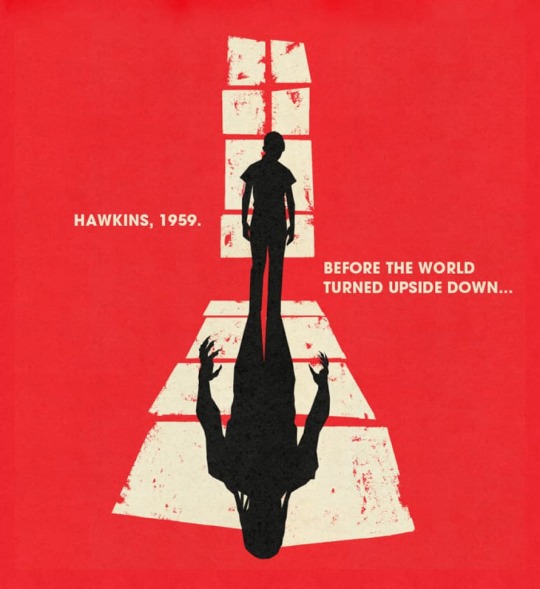
Synopsis: Following a horrific incident from their previous life in Nevada, the Creel family relocates to Hawkins, Indiana in an attempt to make a fresh start and instill a sense of normalcy in their son, Henry Creel. However, Henry is anything but normal, and harbors a dark secret of his own that scares both himself and his family. When a series of gruesome animal killings takes place, attracting the attention of a group of teenage outcasts and a Doctor with his own agenda, Henry realizes his secret is about to be exposed, and is forced into a reckoning that will change the course of his life, and of Hawkins, forever.........
Observations:
FINALLY!!!!
I've been waiting for MONTHS to see The First Shadow. As far back as January, we got tickets and made plans to travel to London specifically for this. Last Thursday (June 20, 2024), we were able to view it on-stage.
Was it worth it? Short answer: YES.
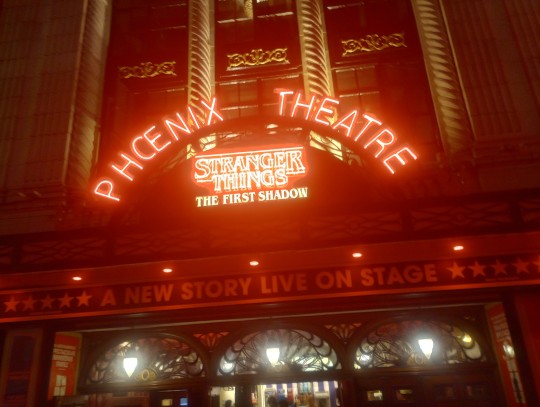
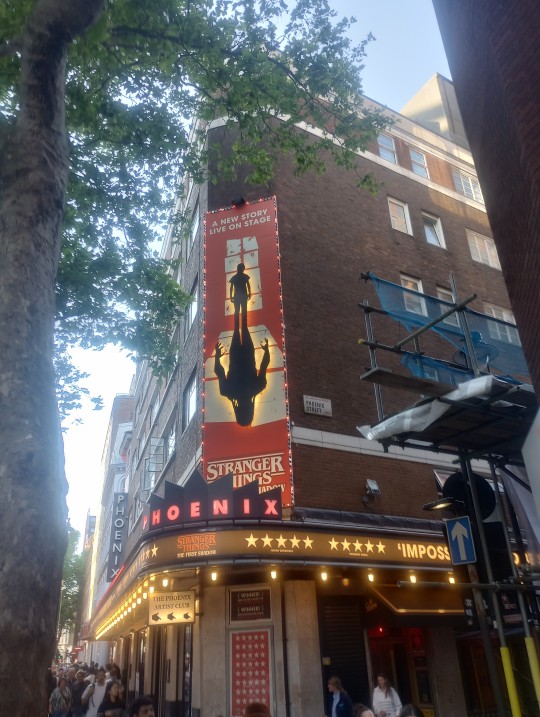
This is going to be divided into several parts. The first bit will detail my experience at the play, and the remaining parts will contain SPOILER HEAVY analysis of the story, the characters, and plot revelations tied directly to the mythology of the show. There's a lot to speculate on where the Duffer Brothers will take the final season from here.
Part 1: My Experience
In terms of production value, this was top-notch. I loved the set designs, from Hawkins High School, to the classic 50s Diner the characters hang out at, to the gothic Creel House, to the cold white rooms of Hawkins Lab, to the hellish landscape of Upside Down, and so on. The 50s aesthetic works well, and there were multiple shots that conveyed the sense I was watching an episode from the show.
The special effects were spectacular. Huge shout-out to the way they choreographed the mutilation of both animals and humans. It actually looked like bones being snapped and limbs twisted around. There's even a disturbing scene where Hopper and Bob are digging up the carcass of a butchered cat, and the prop they used for it looked realistic (combined with dirt and blood for nauseating effect). The lighting also helped elevate the creepiness of it all.
The music was also great. They had a nice selection of 50s songs, but they also brought back familiar themes from the show. One of my favorite musical cues was the use of Philip Glass's "Window of Appearances" which is heard when Vecna's origins are revealed in "The Massacre at Hawkins Lab" (Season 4, Episode 7). They also use it in the climax of this play:
youtube
The actors brought their A-game, but the two performances that really stood out for me were Isabella Pappas as Joyce and Louis McCartney as Henry Creel. Pappas does a stellar job combining Joyce's world-weary "I'm sick of everyone's bullshit" attitude with the fierceness that makes Joyce stand out as a character. It reminded me a little of Natalia Dyer's performance as Nancy Wheeler, especially with the "take charge" attitude that both of them have.
As for McCartney, he was the show-stealer. I didn't go into this play expecting to feel any sympathy for Vecna, but the emotional depth McCartney brings to his performance elevates the character to a 3-dimensional complex tragic villain, which makes his eventual fall to evil all the more heartbreaking.
The audience I was with was fully immersed. Most of the jokes got a laugh, there were a few screams when jump-scares occurred, and there was a standing ovation at the end when the cast came out to give a bow. Even during intermission, everyone was chatting happily about the play, and I heard nothing but compliments.
My only regret is, due to a scheduling conflict that day, we ended up missing the first 5 minutes, and they wouldn't let us in the theater until the title cards came up. We did see parts of the beginning on a TV screen in the lobby (and one of the patrons was gracious enough to fill us in on what happened), but I wish I'd been in the theater for the beginning. My advice is GET THERE EARLY if you plan to see it. The theater fills quickly, and they may not let you in at certain points.
The only minor nitpick I have about the quality of the play is there were a few moments I had a hard time understanding what certain characters were saying. This was mostly in the scenes with Henry/One/Vecna when he was either screaming or alternating to his demonic voice. I was usually able to figure out what was going on, but I wish the dialogue had been clearer.
Overall, this was a fun experience, and I even brought back memorabilia from it:

Part 2: Characters/Story (MAJOR SPOILERS AHEAD!)
It's pretty much advertised in the synopsis, but the play takes place in 1959 when Joyce, Hopper, and Bob are in high school during the time the Creel family moves into Hawkins. The story is largely centered on Henry Creel's villain origins as he becomes more unhinged due to the power he possesses. This leads to a series of pet killings in Hawkins that catches the attention of Hopper, who ropes in both Joyce and Bob to investigate and find the culprit. All the while, Joyce is struggling to put on a play at Hawkins High School (i.e. The Dark of the Moon), which coincidentally happens to have Henry/One/Vecna as the main star! :)
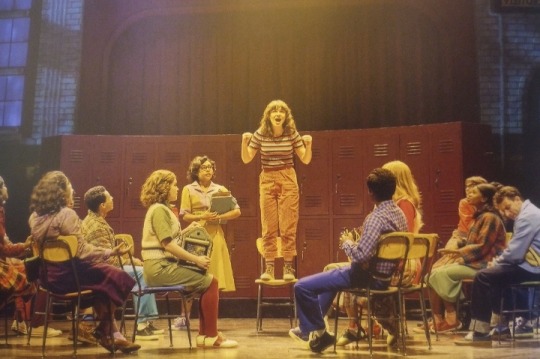
These three arcs sound like they shouldn't connect at all, but to the Duffer Brothers credit, they manage to thread them in a way that's believable and engaging. Joyce's exasperated attempts to get The Dark of the Moon off the ground provide some light comedy to what is essentially a grim story, and it was a nice way for the audience to see all the adult characters from the show (i.e. Ted Wheeler, Karen Wheeler, Al Munson, Lonnie Byers, Sue Sinclair, Charles Sinclair, etc) as they were during their teen years.
The investigation of Hopper, Joyce, and Bob into the pet killings hearkens back to the old-fashioned dynamic the Party had in the first season when they were looking into Will's disappearance.
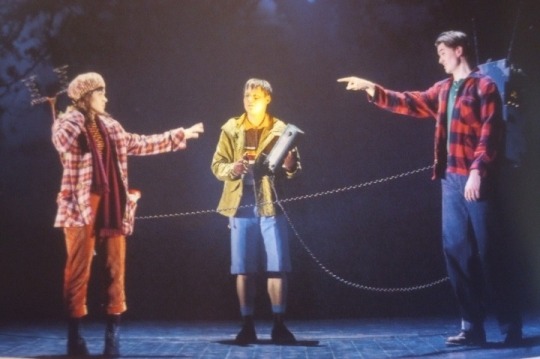
As for Henry/One/Vecna, his arc was well executed and horrifying on so many levels:
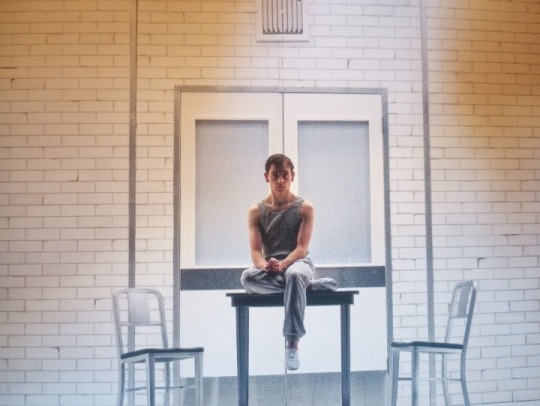
The way a young Henry Creel was portrayed in this play was oddly endearing. I mentioned earlier that McCartney brings a lot of emotional depth to the character, and by that, I mean he portrays teenage Henry as awkward, shy, creepy, funny, and even sympathetic at times. He's a kid who doesn't feel comfortable in his own skin, who has a hard time interacting with other people, and has powers that frighten him with the added side-effect of NOT knowing how to control them yet. Victor Creel mentioned to Nancy and Robin in S4 that Henry was a "sensitive child" and it turns out that was meant literally: Lights go on or off (or even explode) whenever Henry's mood fluctuates (making Henry constantly jumpy), he can unknowingly tune into the radio with his powers and mistakes it for voices in his head, he can read the thoughts/moods of other people, he can create illusions (similar to Kali/Eight), and whenever he tries experimenting with his powers, it ends in disaster. In short, he's someone who's terrified of his own shadow, and almost everything in his environment sets him off. At the same time though, there are some relatable qualities to him, such as his love for comics like Captain Midnight (which he eagerly shares with Patty), and there is an internal struggle he deals with for most of the play to genuinely be a good person in spite of the demons (both literal and figurative) that threaten to overwhelm him. He reminds me of Will Byers in some ways, and I am dead sure that parallel between these two characters was intentional on the Duffer Brothers part.
Contrary to what's implied on the show, it turns out Henry had his powers long before he moved to Hawkins. Previously, he lived in Rachel, Nevada until an incident between him and another boy resulted in said boy ending up in a wheelchair. It's ambiguous whether Henry deliberately attacked the boy or if it was an accident (it could have been either one), but it was enough to force his family to move. His parents (particularly his mother) are insistent on pretending everything is normal and that Henry will eventually get better, all the while putting more of an emotional strain on Henry as he tries (and fails) to conform.
We get a little more insight into Henry's parents, and it's not pretty: Victor Creel was already established on the show as a war veteran with severe trauma and PTSD over killing innocents during a raid, and the play depicts him the same way, with the added effect of being so wrapped up with his own issues that he fails to see his own son spiraling. The sad thing is there are scenes indicating he does love Henry (and also defends Henry's relationship with Patty, referring to it as "puppy love") but he isn't able to convey that in a way which makes Henry feel safe.
As for Virginia Creel, I don't know if this was intentional in the narration, but I found her unlikable. Putting aside the unsettling 50s Stepford Wife persona she projected, her treatment of Henry bordered on emotional abuse. She likely didn't intend that, but everything, from her attempts to keep Henry isolated from the one relationship that brings him any happiness, to constantly treating him like a time bomb waiting to go off, to pretending everything is okay when it isn't.........all of this causes whatever mother/son relationship she has with Henry to deteriorate. There's even one nasty scene where she smacks him, though she quickly regrets it when Henry lashes out in anger and forces his mom to witness a vision of herself being covered in spiders when she was locked in the closet by her abusive parents as a child. In some ways, it reminded me a little of the Norma/Norman Bates relationship from the Psycho series (minus the incest subtext) in how unhealthy it is. It was deeply uncomfortable seeing her attempt to force Henry to be something he wasn't just so she could maintain the image that she and her family were perfect. And when she realized she couldn't do that, she finally tried to wash her hands of Henry the moment Dr. Brenner showed up and offered to take Henry into his care ("Lock him up and throw away the key" to paraphrase one of her comments). I get that this is set in the 50s where there's plenty of values dissonance with how parents raised their kids at that time, and there is some context behind why she was scared of her son and his behavior (because there were times Henry wasn't acting okay), but she still handled this situation poorly and contributed to Henry internalizing his trauma and insecurities until they exploded out of him in the worst possible way. It was bad enough that Henry was dealing with something he didn't understand, but she needlessly added on to those problems.
Alice (Henry's sister) is also in the play, but she only appears in a few brief scenes, and sadly doesn't get a lot of characterization beyond being the "cheerful child" in the family. It's implied she knows that something is wrong with her brother, but doesn't look closely at it. Interestingly, they portray her like she's Henry's younger sister, even though the show established that she's supposed to be older (There's a news article in S4 that claims Henry was 12 and Alice was 15 when the Creel murders happened). Other than that, there isn't really much to say about Alice.
The three main characters (Joyce, Hopper, Bob) have their familiar quirks that will follow them into adulthood: Bob is nerdy, smart, good with technology (which comes in handy in their investigation) and the host of a radio show. Hopper is the disgruntled son of the Chief of Police who's trying to make something of his life. Joyce is high-strung, in a dead-end relationship with Lonnie, and trying to find a balance between optimism and pessimism. In a way, I'm reminded of the Steve/Jonathan/Nancy dynamic we briefly got in the S1 finale, with Joyce having similarities to Nancy, Bob to Jonathan, and Hopper to Steve. This was clearly set up as a love triangle between the 3 of them, and I have to question if the Duffer Brothers deliberately did this to foreshadow what could end up happening between Steve/Jonathan/Nancy in S5. In any case, Joyce, Hopper, and Bob investigate the animal killings when they start to happen, and while they come close to figuring out who it is, they ultimately miss the mark and pin the crime on the wrong person (Poor Victor Creel). Sadly, by that time, it's too late, and both Virginia and Alice Creel are dead.
There is a new character introduced named Patty Newby who plays an important role. She's the adopted sister of Bob and was revealed to have been taken in (or stolen as a child, as Henry later claims) by Bob's father, Principal Newby. Despite his misanthropy and awkward nature, Henry takes an interest in Patty, and the two of them develop genuine affection for one another. When Patty auditions for Joyce's play, Henry helps her with her lines (which leads to both of them getting cast as the main leads), and later feels comfortable enough to share his secret powers with her, including giving her a glamorous vision of starring and singing in a Las Vegas show. Against all odds, I actually found the relationship between Henry and Patty to be cute. Not only did it humanize Henry, but the way it was presented made sense: Both of them are outcasts with deep insecurities that they're trying to work through. Patty feels like an outsider in her family and at school due to her race (which isn't helped by people like Dustin's father making disgustingly bigoted comment towards her during class) and her complicated relationship with her adopted dad, who treats her coldly. Since Henry also feels like an outcast in his family, he's able to empathize with her, and both of them try to encourage the best in one another. In a moment of genuine kindness, Henry helps Patty locate her biological mother (who coincidentally is also a singer), and Patty returns the favor by trying to encourage Henry into believing that he is a good person and that there are positives with his powers.
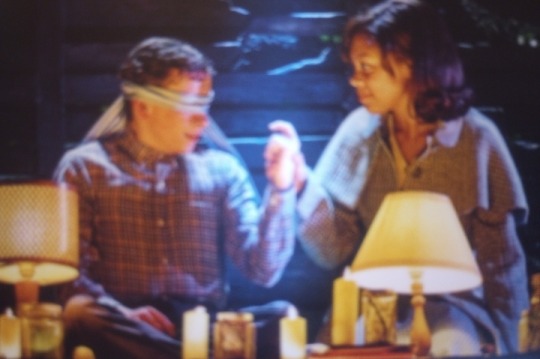
I know some fans will complain about how Patty was never mentioned on the show even though she's supposed to be adopted siblings with Bob, but I'm not bothered by that. Nothing about her existence contradicts anything on the show, and it was nice to see a redeemable side to Henry that proves he wasn't a complete monster to begin with. The only thing that's harsher in hindsight is that, because Patty and Bob were close growing up, and because of Henry's affection for Patty, it makes what he does to Bob in S2 (i.e. siccing the demodogs on Bob) a lot more vile.
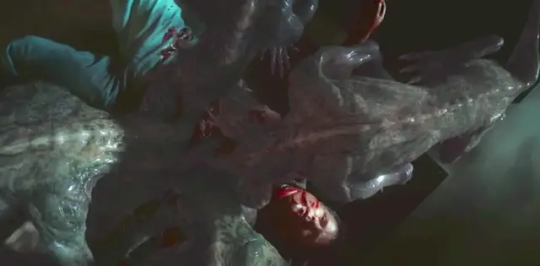
Finally, there's Dr. Brenner himself: If there was ever any doubt that he saw Henry and the other special kids like El as a means to an end, this play erases that. He is at his absolute worst here. Manipulative. Cruel. Determined to push Henry over the edge. Egging Henry into murdering a convicted prisoner, even though Henry fights back against doing that, all so Brenner can test him. Hurling verbal abuse at Henry, and then playing up the "Loving Papa" persona in the same way he would do with El years later. It really says something that he is the most loathsome character in the play, and that he doesn't see Henry as a person so much as a tool.
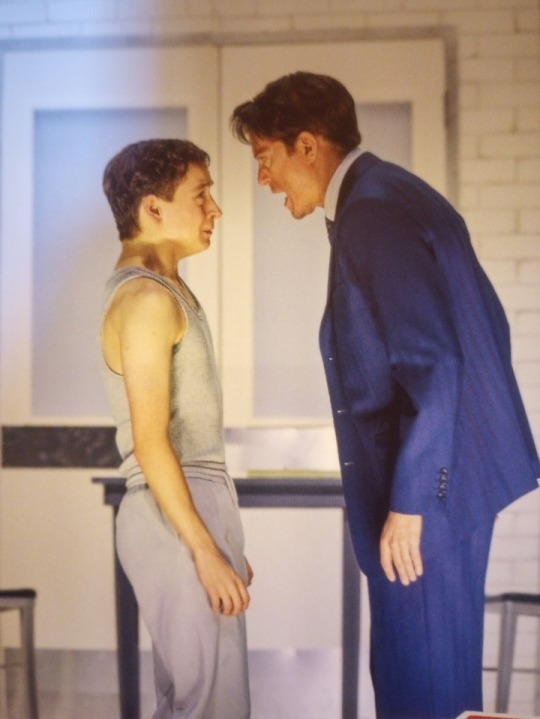
This was already a given on the show, but I still remember fans who kept making apologies for Brenner's behavior in S4 while insisting he really did care about Henry and the other kids in spite of his abuse of them. 🙄 I always maintained those were garbage apologies, and this play only reinforces that. Even though Henry is ultimately responsible for the choices he makes (regardless of the negative influences in his life), there is an argument to be had that Brenner bears responsibility for destroying whatever remaining goodness Henry had left in him until Henry became the cold, calculating monster with a plethora of rage and a deep hatred for humanity to accompany it.
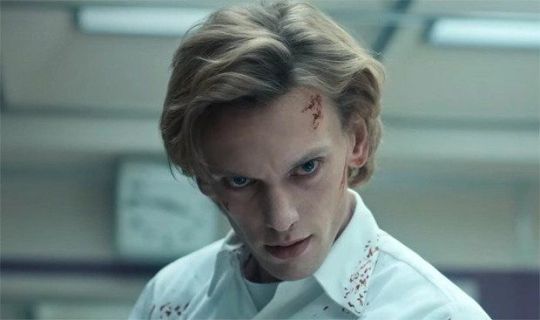
Part 3: Revelations
For a while now, I've held theories that the powers El, Henry, and the other special kids have had were connected to the Upside Down. These theories were even talked about in my reviews for Stranger Things Six, Stranger Things The Other Side, and Stranger Things Suspicious Minds. I've also speculated on the idea that the Mind Flayer might be its own entity, and that Henry/One/Vecna didn't create it so much as gave it a form when he found those black particles in the Upside Down decades later.
This play confirms those theories: Not only is the Upside Down connected to their powers, but it's revealed in this play that the Mind Flayer acted as a malevolent corrupter to a young Henry, which would later lead to him becoming the monstrous Vecna.
At the beginning of the play, there's a flashback to 1943 where the U.S. military was experimenting with a new technology on the USS Eldridge to create a force field to hide the ship from the Germans during WWII. Interestingly, this bit was based on a real life experiment called "Project Rainbow," and the pamphlet I bought gives more details about it:
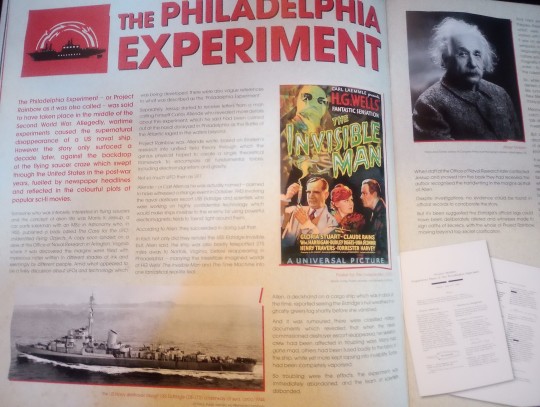
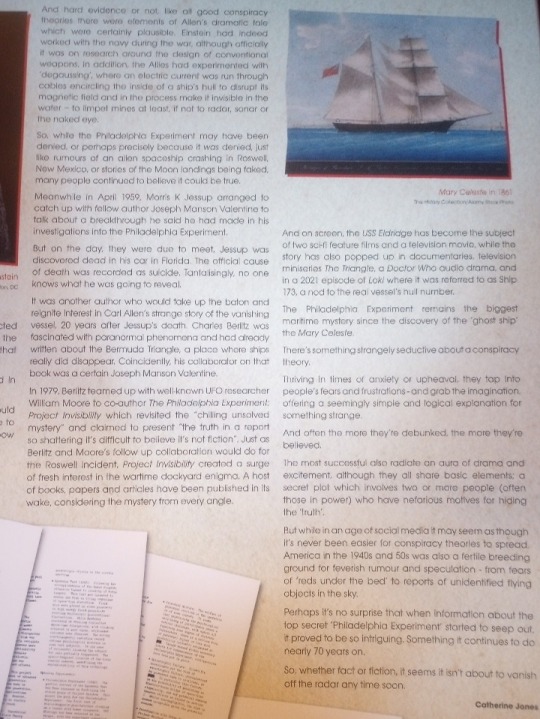
In the play, the technology caused the ship to end up in the Upside Down, where most of the crew was slaughtered by Demogorgons. The sole survivor turned out to be Dr. Brenner's father, who came back to the real world with altered blood in his system. He ends up dying, but passed on his secret to his son, kick-starting Brenner's scientific pursuits for the military. In other words: Brenner was aware of the Upside Down long before El banished Vecna to it in 1979.
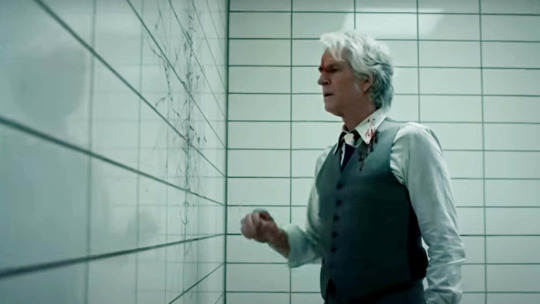
Fast-forward a few years later. Henry is in Rachel, Nevada, playing in one of the caves with a spyglass when he encounters a rogue scientist who worked under Brenner in Nevada. Brenner had spent years attempting to replicate the experiment on the USS Eldridge in Nevada, and one of his scientists had stolen key technology and fled to the caves. When Henry discovers the technology, it transports both him and the scientist to the Upside Down. The scientist is killed, but Henry gets exposed to a malevolent entity (The Mind Flayer) before he is transported back to this world. Just like with Brenner's father, his blood is altered, and so is his personality. Brenner would later be able to track Henry down due to the spyglass he dropped in the caves after his exposure. In spite of escaping the Upside Down, Henry was now connected to the Mind Flayer, who spends the majority of the play acting as a malicious influence driving Henry to kill, and chipping away at his personality bit-by-bit:
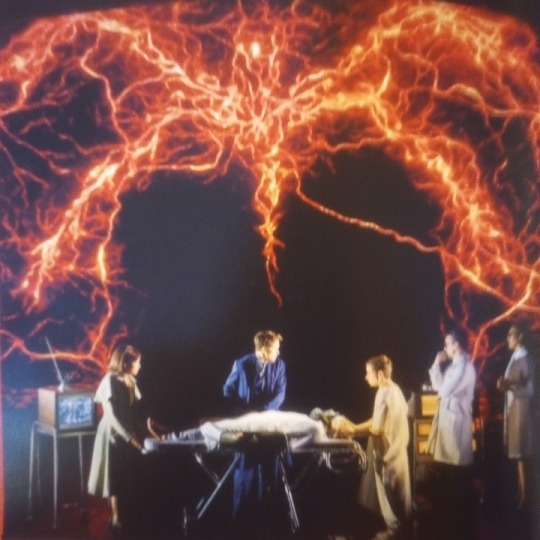
It's not really a spoiler to say Henry is behind the pet killings in Hawkins (since he was shown killing animals on the show), but the difference here is the play makes it ambiguous how much control Henry has over his powers and actions. The Mind Flayer certainly uses Henry as a vessel, but there are moments Henry was shown to be capable of resisting it, indicating there was some manner of agency on Henry's part. In some moments, he chose to drive off the monster, whereas in others (like the deaths of Virginia and Alice Creel), he allowed the monster to work through him.
Like I said, these are theories I've held for a while now, so it felt gratifying to see them validated. While Vecna's monologue to El in 1979 implies that he was always a sociopath with powers who acted on his own accord with no outside influence, it's important to note that Vecna in that scene is an unreliable narrator twisting past events to paint himself a certain way to El. Part of it may be that he doesn't want to admit he was a victim of the Mind Flayer and that he made his own choices (Which is true: He DID have choices and the ability to reject the Mind Flayer, which we see in one scene when the Mind Flayer attacks Patty's father, and Henry intervenes on Patty's behalf to save him). Part of it may be that he's been under the hold of the Mind Flayer for so many years that, by the time El meets him, he's come to believe he and The Mind Flayer are one in the same.
Either way, regardless of what happened, there were a lot of elements stacked against Henry that makes me pity him: The Mind Flayer's influence, Brenner exploiting Henry's powers for his own selfish scientific desires instead of genuinely helping him, his parents trying to force Henry to be normal and shove down his issues instead of taking the time to deal with them..............the only positive thing Henry had going for him was his relationship with Patty. Her determination to see the good in Henry and his powers, and her belief that Henry could rise above the darkness gave some brief salvation for him. Unfortunately, that wasn't enough to save him, and the darkness won in the end.
There is a slight change I was okay with: In the show, Henry mentions that he fell into a coma after killing his mother and sister. While that is true to some extent, he actually wakes up a few hours later and flees the house to go find Patty at the school. He encounters Joyce in the basement (after the power gets knocked out) and, in a scene that's both creepy and sad, he acknowledges that Joyce is a good person and warns her that the world will punish her for it while taking away everything she holds dear. There's a dark irony to his words considering he would later be responsible for the disappearance of her son, the death of Bob, and most of the problems Joyce would later deal with on the show.
Following his encounter with Joyce, Henry finds Patty on an elevated stage platform, and begs her to run away with him. She is basically his last hope at this point, and even that is taken away when Brenner manages to track him and Patty down. There's a whole "Good Angel/Bad Devil" exchange that occurs as Patty (the Angel) implores Henry to fight against The Mind Flayer while Brenner (the Devil) snarls that Henry is already a monster and he might as well accept it. All of this cultivates in Henry using his powers on Patty, having finally surrendered to the Mind Flayer's influence, and throwing her from the rafters, almost killing her. Henry passes out after this, and Brenner takes him back to Hawkins Lab, where he will spend the next 20 years as Brenner's prisoner. Patty manages to survive the fall and, thanks to information Henry gave her earlier, she's able to locate her biological mother in Las Vegas and reunite with her. The last act of redemption Henry would ever have.
These revelations help give context to the mythology of the show. They explain what motivated Dr. Brenner for so many years. They explain the Mind Flayer was well aware of this world, and that Brenner was aware of the Upside Down long before El opened the gate in 1983. They explain Henry already had troubling aspects to begin with, and that his encounter with the Upside Down and the Mind Flayer only amplified those problems. They explain how and why Henry became disillusioned, nihilistic, and angry over the next 2 decades, and how he would project that onto his enemies once he became Vecna. They explain why Henry/One/Vecna takes an interest in certain characters on the show, from El (whose upbringing and struggles are similar to what Henry went through as a child) to Will (who shares similar traits with him as an outcast and a nerd) to even Billy (with both of them projecting their rage onto the world), and went as far as to target them. And, most importantly, it explains how Henry and other special kids like Kali and El got their powers.
This does raise interesting questions that I hope S5 will explore more of:
Since Will was kidnapped and taken to the Upside Down in S1, does this mean his blood type has been altered as well due to his exposure to the Mind Flayer? Does he now possess some kind of power similar to El that we haven't seen yet but might be unveiled in the last season?
And what about the Upside Down freezing in time in 1983? Considering the Upside Down remained consistent as a hellish environment (even after El banished Vecna to it in 1979), this gives the impression that what happened there was an anomaly. I still maintain Will's disappearance had something to do with the altered environment, and I have provided theories for it in my review of Stranger Things The Other Side, but it's still a question that remains unanswered by this play.
And then there's Patty: She does survive, and last we see of Patty is her reuniting with her biological mom, but it's also mentioned she disappeared and that Bob (her adopted brother) misses her and plays songs over his radio podcast in her memory. Did Bob ever find Patty following this, or did he die before that could happen? Does she even remember Bob or Henry, or did the fall (which injured her badly enough that she now walks with a cane) cause her retrograde amnesia? Is it possible S5 might bring her back, and she could have some role in reaching out to Henry/One/Vecna? Is she still alive at this point?
So many questions that I'm hoping S5 provides answers for.
Part 4: Themes
It's no coincidence that the play Joyce produces for the school holds parallels to the tragedy of Henry and Patty's relationship. The Dark of the Moon is a ballad about a "witch boy" named John who falls in love with a human girl named Barbara Allen. He is given a human form on the condition that she remains true to him. Through a series of tragic events (including the death of their child at the hands of religiously-crazed townsfolk), Barbara ends up betraying John, causing him to lose his humanity and become a part of the fog from the place he came from.
If we're drawing direct parallels, it's pretty obvious Henry is John, the "witch boy" embedded with special powers who falls for the human girl, Barbara/Patty. The difference is that the "humanity" of Henry is more metaphorical than literal: He attempts to not give into the monstrous influence of the Mind Flayer, and Patty recognizes this and is determined to help him through the love she gives him. However, the key difference is Patty isn't the one who betrays Henry. If anything, she remains a loyal friend and confidant to Henry (even AFTER Brenner tells her that Henry killed his mother and sister) and desperately tries to convey to Henry that she believes in him and that he can fight off The Mind Flayer. Unfortunately, that proves insufficient, and it's Henry who inflicts the final betrayal on Patty, destroying their relationship, and causing Henry to become prisoner of Dr. Brenner at Hawkins Lab. He is the "witch boy" who returned to where he came from.
It should be noted that the ballad this play is based on contains these final lyrics:
They laid poor Barbra by the old church gate,
With the wild, wild rose growin' nigh her,
And witch boy roamed the mountain high,
'Til mountain fog became him.
And then one morn, before the dawn,
The fog rolled down that mountain,
It came to rest nigh Barbara's rose,
and watered there a briar.
The rose and briar climbed the old church gate,
'Til they could grow no higher,
And there they tied in a true love's knot,
The rose wrapped 'round the briar.
And so a witch and human gal,
Had conquered death eternal,
And 'neath the darkness of the moon,
Their love's entwined forever.
Could this be foreshadowing that, as evil as Henry/One/Vecna has become, there is still a chance at redemption for him through Patty? That whatever love he held for her could bring back Henry's humanity and allow him to overcome the Mind Flayer one last time? They did a similar thing with Billy Hargrove in S3 (with the platonic love he had for his mother), and since love is one of the key forces that's been shown to repel the Mind Flayer, it could work again in Henry's favor if he chooses to take it.
However, a lot of this is tied to whether Henry is capable of remorse or empathy at this point, and considering what we've seen on the show, it's a safe bet to say whatever humanity he had left in him is now gone. I'm doubtful that even if Patty shows up in S5, it'll be enough to redeem Henry. There are some things you can't come back from, and regardless of the negative influences he was dealing with, Henry still had choices, and he chose to hurt others.
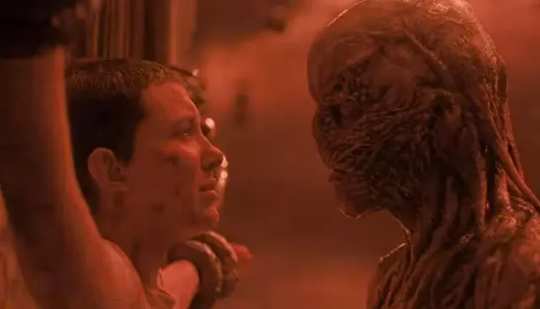
In a way, Henry's story reminds me of Coriolanus Snow's arc in The Ballad of Songbirds and Snakes: Despite the relationship he has with Lucy Gray Baird, it wasn't enough to cancel out his negative personality traits (narcissism, entitlement, etc) and whatever love he may have had for her isn't enough to redeem him, or prevent him from becoming the tyrant we all know and loathe by the events of The Hunger Games.
Another theme present was the exploration of the adult characters and how the personality traits they had as teens continue well into adulthood. It's been speculated before by various groups of people that, internally, there's a certain point where you stop growing mentally and remain the same age, and that definitely seems to be the case here with some characters. The problem is that while these qualities might have been excusable when they were teenagers, they become less appealing as time goes on:
Ted Wheeler, for example, is depicted in the play as a dumb jock who's clueless most of the time. Fast-forward to the 80s, and he's now an apathetic father who still remains clueless. Not only is this not cute anymore, it's frustrating to his wife and those around him.
Karen Wheeler is depicted in her teens as interested in her youth and beauty and dating Ted BECAUSE he's a hot jock. By the time she's an adult, she's still into that (though she does make more of an effort to be emotionally available to her kids unlike Ted) and her desire for youth and a passionate relationship almost leads her to sleeping with Billy despite the inappropriate age difference between the two. 🤮
Jim Hopper is a younger man with a fractured relationship with his abusive father, and a lot of his motivation is rooted in trying to stick it to his dad and prove that he isn't the loser his father thinks he is. It's why he takes an interest in the animal killings around Hawkins and conducts an investigation similar to how police would do it. It's also why he joins the Vietnam War later (as he would later tell Enzo/Dmitri in S4). Even later becoming the Chief of Police on the show likely has its roots in this. Years later, long after his dad is likely dead, he's still trying to prove him wrong.
Lonnie Byers is depicted as a douchebag, even as a teen, who isn't really interested in making something of his life, who's coasting off other people, and really doesn't have any desire to improve himself. Come Season 1, and is it any surprised he's a deadbeat dad who's divorced from Joyce and still making shitty decisions down the line?
Same goes for Al Munson: The play depicts him as an improv actor who's deeply self-centered, who isn't as good as he thinks he is, and is someone who just annoys everyone around him with his antics. Anyone who's read Flight of Icarus knows he doesn't get any better as an adult, and it has completely wrecked his relationship with his brother Wayne and his son Eddie.
And then there's Dustin's father: "Asshole" is the best term I can use to describe him. He's very belittling and not well-liked (even among his peers), and it doesn't surprise me that Mrs. Henderson (who's also shown to be a cat-lover as a teenager) would eventually split with him and raised Dustin on her own.
There are a few positives though: Both Charles and Sue Sinclair come out of the play as decent people, and Sue is shown to be a loyal friend to Joyce, helping Joyce to get her play organized. I can see why they ended up together, and I maintain both Lucas and Erica are lucky to have them as parents.
The overall point is, like with Henry (who also never really grew up, and is now an angry kid trapped in the body of a 30-something adult), there is a theme that change is a process you have to work on. All of these characters (including Henry) have their own flaws they have to work through, and it is a choice about whether you put in the hard work of overcoming those flaws, or you surrender to them and let them dictate your life and stilt your growth. It's always an uphill battle, and it's never easy, but when the alternative is hurting the people around you, I would argue it's worth the effort for their sake.
Final Thoughts:
While there is some leeway between how events in the play can be interpreted, there is one tiny retcon that was hard to ignore: Henry's age. In the show, it's specifically mentioned in the newspaper article that Nancy and Robin look up that Henry was 12 when Virginia and Alice Creel were killed. However, this play retcons his age to being 14 years old. My guess is this was likely done so that Henry would be a freshman, and therefore able to attend Hawkins High School with Joyce, Hopper, Bob, and the other characters. While I don't mind this retcon for story purposes, it still sticks out like a sore thumb, and I wish the Duffer Brothers would take better care with details like that, especially after what happened in S4 with Will's birthday being forgotten.
There is a pamphlet for 10€ that they sell at the Phoenix Theater that gives more information about the play, its cast, and the central ideas behind the story. You can even see it in the picture above with the other memorabilia I collected (next to the t-shirts I bought). If you're going to see the play, I highly recommend purchasing it. It's worth the money.
Overall, this was a well-written play that I'm willing to accept as canon. I hope the events in this play are referenced in S5, and have a role in how the show's story unfolds. I highly recommend getting a ticket for anyone who is a Stranger Things fan! :)
#stranger things#tgh opinions#tgh reviews#stranger things the first shadow#the first shadow#henry creel#vecna#number 1#joyce byers#jim hopper#bob newby#patty newby#martin brenner#virginia creel#victor creel#alice creel#the mind flayer#will byers#el hopper#principal newby#the upside down#stranger things season 5#st5 theories#stranger things 5#st5 spoilers#Youtube#ted wheeler#karen wheeler#al munson#sue sinclair
59 notes
·
View notes
Text
The real question is why is Henry asking Jace about Ruben and not the bard teacher or Jawbone?
#why is he going to the interim vice principal and not someone actually involved in Ruben’s life#and what the fuck is he concerned about#fhjy#henry hopclap#jace stardiamond#ruben hopclap#fantasy high junior year#jace stardiamond im fucking on to you#dimension 20#d20#dropout#fantasy high#d20 fhjy#dimension 20 fhjy
54 notes
·
View notes
Text
I’m absolutely team Henry-built/hacked-Grix. He’s Ruben of the Rat Grinder’s brother, is an artificer, and was seemingly very nice to Gorgug while also giving him 300 times the work of a normal multiclasser and proposing it as a solution.
That paired with the fact that Grix said “rules enforced to the utmost ability of this STUDENT govt” last episode + Kipperlily’s run for student president, there’s def something going on
#and I think jace is in his villain era after being hinted at last season#henry hopclap#kipperlilly copperkettle#ruben hopclap#interim emergency backup principal Grix#fhjy#fhjy spoilers#d20#dimension 20#fantasy high: junior year
70 notes
·
View notes
Text
happy pride month guyz


#it’s pride month#you know what that means#springartz#william afton#henry emily#fnaf#baldi#principal of the thing#baldis basics#art#digital art#pride month
51 notes
·
View notes
Text
Okay so maybe I’m going crazy here but I think Brennan said Ruben’s last name was Hopclap at the beginning of the episode? The same last name as the artificer teacher, Henry Hopclap? Idk, we have(had) a robot back-up principal potentially on the fritz and an artificer with a connection to people that directly benefit from that fritzing...
#naankhatai#fantasy high#fantasy high junior year#fhjy#ruben#hopclap#henry hopclap#ruben hopclap#principal grix#fhjy ep 8#fhjy ep 9#fhjy theory
49 notes
·
View notes
Text

Prince Philipp Erasmus of Liechtenstein (1664-1704). By Henri Gascar.
#henri gascar#haus liechtenstein#german aristocracy#in armour#liechtenstein#fürstentum liechtenstein#principality of liechtenstein#liechtenstein museum
17 notes
·
View notes
Text
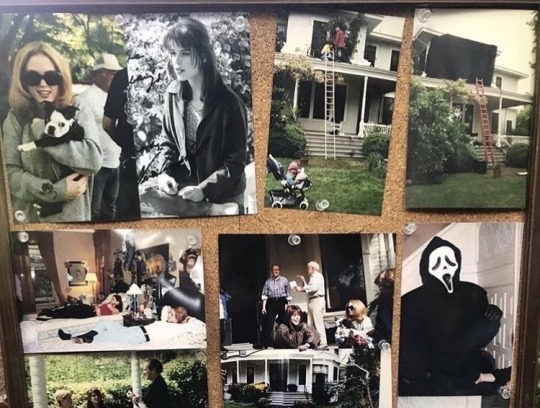

cork board full of behind the scenes photos from the set of “scream” (1996)
#scream#behind the scenes#neve campbell#sidney prescott#rose mcgowan#tatum riley#wes craven#henry winkler#arthur himbry#principal himbry#horror#scream franchise#scream movies#ghostface#slasher movies#horror movies#90s horror#90s
64 notes
·
View notes
Text
It’s amazing to see Nick’s metamorphosis over the years. In fact, the amazing thing is to see your ability to transform with each new character. For me, this is the true meaning of being an actor/actress.
#Notas#Nick Galitzine#rwrb#poamizar#red white and royal blue#firstprince#nicholasgalitzine#rwrb thoughts#rwrb cast#prince henry rwrb#rwrb fic#rwrbsource#rwrb movie#rwrb spoilers#principe henry#Nicholas Galitzine#Baby#premiere#actor#acting#cannes film festival
53 notes
·
View notes
Text
Noooooooo Henry Hopclap was such a supportive force I hate that he is maybe (probably?) responsible for Principal Grix being they way he is
#henry hopclap#ruben hopclap#I KNEW they were related#I wonder if he’s in on this I wonder if it’s because of Ruben#dimension 20#d20#principal grix#artificing#artificer#emergency backup principal Grix#fantasy high#fantasy high junior year#fhjy#fantasy high spoilers#fhjy spoilers#fhjy ep 11#a very merry moonar yulenear spoilers#a very merry moonar yulenear#live reaction#gorgug thistlespring#it’s gorgug keep going#zac oyama#brennan lee mulligan
31 notes
·
View notes
Text
Thinking about baby patty 20 dead 40 wounded

#stranger things#patty newby#(through tears) noo ahah dont think about how patty had no friends in hawkins growing up#and how the closest thing to a friend wouldve been bob vs rhe way bob’s annoyed w her initially re: his radio stuff/the whole fucked up#newby damily dynamic as a whole/the emotional distance that Does exist between bob and patty as a result of mr newbys favouritism#towards bob. do NOT think about how patty is the same age as s4 el vs how el’s had friends since s1#like imagine if el didnt meet max or the party until season 4…. and the fact that patty’s first opening scene/one of the very first things#we’re told about her (and henry) is that she’s lonely… stop stop im already dead#:((((((((#patty i would been your friend its ok#(through tears): when do you guys think baby patty stopped trying to play with bob/when do you guys think that the whole family dynamic#really started to squash any like. proper close bonding yk like they dont hate eachother in tfs by any means but its like#there’s definitely a Distance there in a lot of ways & definitely resent etc you can feel under the surface (although in the end that def#improves) but i just. dont look at me im thinking about baby patty trying to ppay with bob but then going off to sit alone#(through tears and comically loud sobbing sounds) do you guys think that bob blamed patty for his mom leaving the same way mr newby blamed#her for his wife leaving? do you guys think that’s why bob didnt protect/defend her until the end of the play? and even then he didnt DO it#so much as say that he SHOULD have…..#(through even more tears) do NOT think about how quickly patty accepted mr newbys apology and even insisted initially that he has nothing to#apologize for despite the way hes treated her vs the fact that patty so clearly just wants to be loved#do not think about patty’s dad being the principal vs her still getting bullied all the time and then getting in trouble for defending#herself/mocking walter… mr newby when i fucking catch you!!!!!!!#pattyposting
7 notes
·
View notes
Text

H-Henr y.....
I'm actually starting to like him a little bit. idk idk there's just something about this design like yeah henry..... if this was canon henry I think my life would be much better. like yeah that is that is HIM!!!
3 notes
·
View notes
Text
Seeing as Kipperlily seems to have Rich Kid energy - now I’m thinking maybe she’s the reason that Gilear got those tickets. If they wanted a way to make sure that there was a level of “fairness” at Augefort, then maybe they found a way to hack things and got him hose tickets. I’m also wondering if they somehow caused the quangle and are for all intense and purposes the reason Aguefort is gone too. They simply took it as an opportunity and are misguided in their approach
#fantasy high#fantasy high junior year spoilers#fantasy high spoilers#bonus points if they either tricked or got Henry Hopclap in on building the backup principal#like he IS the artificer teacher#it’s entirely possible he built grix#given that we didn’t know about him until now#it could make sense.
8 notes
·
View notes
Text
Until December 1529 the king continued to hold the title of the Irish and English earldoms of Ormond in his gift. Then, however, Henry moved to appoint Anne Boleyn's father, Thomas Boleyn, the 'new' earl of Ormond. He also resurrected the old title, earl of Wiltshire, which had been discontinued after the execution in 1461 of James Butler, fifth Earl of Ormond.
Aristocratic Women in Ireland, 1450-1660: The Ormond Family, Power and Politics, by Damien Duffy
#james butler was thomas boleyn's...great +...uncle?#great-great uncle. if im not mistaken#anyway. he was called 'the handsomest man in the kingdom'#a source of amusement to me that the boleyn men and their descendants tend to be remarked upon as extremely hot#anyway...funnily enough thomas seems to have taken more after his other great-great uncle; john butler#who was also staunchly lancastrian but lucky enough to be restored rather executed#'if good breeding and liberal qualities were lost in the world; they might be all found in the earl of ormond#'complete master of the languages of europe#and was sent as ambassador to its principal courts'#damien duffy#thomas boleyn#henry viii#henrician
4 notes
·
View notes